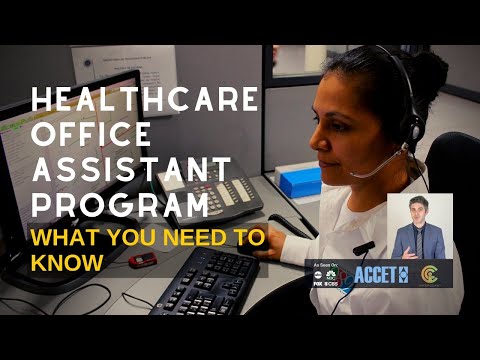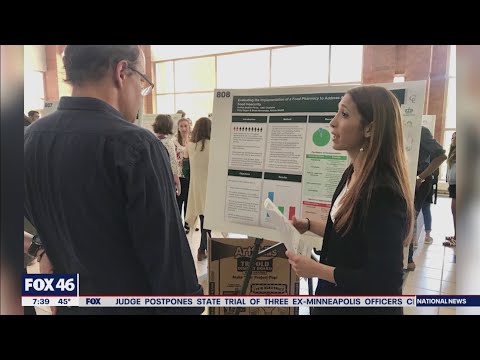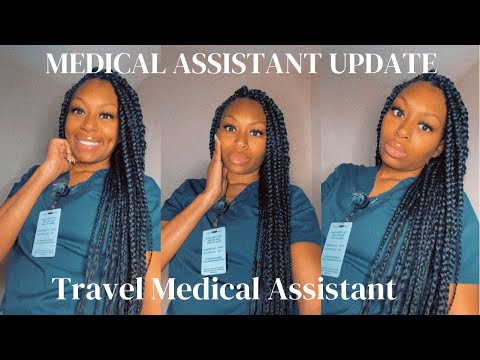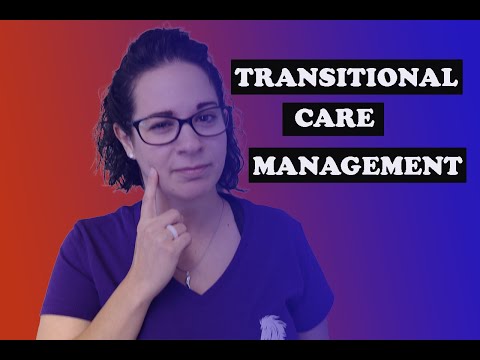Medicaid Assisted Living in NJ: What You Need to Know
Contents
- Medicaid 101: What is Medicaid and how does it work?
- Medicaid and Assisted Living in New Jersey: What You Need to Know
- The Medicaid Waiver Program and Assisted Living in New Jersey
- Medicaid and Long-Term Care in New Jersey
- Applying for Medicaid in New Jersey: What You Need to Know
- How to Pay for Assisted Living with Medicaid in New Jersey
- Medicaid and In-home care in New Jersey
- Medicaid and Adult Day Care in New Jersey
- Medicaid and Home Health Care in New Jersey
- Where to Get More Information About Medicaid and Assisted Living in New Jersey
If you or a loved one are considering Medicaid Assisted Living in NJ, there are a few things you need to know. Here are the basics of what Medicaid will and won’t cover, and how to find a facility that meets your needs.
Checkout this video:
Medicaid 101: What is Medicaid and how does it work?
Medicaid is a government-funded health insurance program that provides coverage for low-income Americans. In order to be eligible for Medicaid benefits, a person must meet certain income and asset requirements.
Medicaid is jointly funded by the federal government and the states, and each state has its own Medicaid program. In order to receive federal funding, states must adhere to certain guidelines set by the federal government. However, states also have some flexibility in how they design and operate their Medicaid programs.
In New Jersey, Medicaid is administered by the Department of Human Services. The NJ Medicaid program covers a wide range of health care services, including hospitalization, prescription drugs, and long-term care.
To learn more about Medicaid and how it works, visit our Medicaid 101 page.
Medicaid and Assisted Living in New Jersey: What You Need to Know
There are many factors to consider when choosing an assisted living facility, and one of the most important is whether or not the facility accepts Medicaid. Medicaid is a government-funded health insurance program that helps low-income individuals and families pay for medical care. In some states, Medicaid also covers the cost of assisted living.
In New Jersey, Medicaid does cover the cost of assisted living for certain eligible individuals. To be eligible for Medicaid coverage, an individual must meet certain financial criteria. In addition, the individual must require a certain level of care as determined by a physician.
If you or a loved one is considering moving into an assisted living facility in New Jersey, it is important to research the facility’s policy on Medicaid coverage. Some facilities may only accept private insurance, while others may accept both private insurance and Medicaid. There are also facilities that are designated as “Medicaid-only” facilities, which means that they only accept residents who are covered by Medicaid.
Choosing an assisted living facility is a big decision, and it’s important to make sure that all of your needs will be met. If you have questions about whether or not a particular facility accepts Medicaid, you can contact the facility directly or speak with a healthcare professional who can help you navigate the process.
The Medicaid Waiver Program and Assisted Living in New Jersey
The Medicaid Waiver Program helps to pay for long-term care services for people who are elderly or have disabilities. In order to be eligible for the program, individuals must meet certain criteria regarding their income and assets.
Assisted living facilities in New Jersey that participate in the Medicaid Waiver Program must provide a certain level of care to their residents. This includes personal care services, such as help with bathing, dressing, and eating; medication management; and 24-hour supervision. Participating facilities must also provide two meals per day and housekeeping services.
It is important to note that not all assisted living facilities in New Jersey participate in the Medicaid Waiver Program. For those that do, it is important to be aware of the level of care that they are required to provide and what costs are covered by Medicaid.
Medicaid and Long-Term Care in New Jersey
Medicaid provides health care coverage for low-income individuals and families. In New Jersey, Medicaid also covers some long-term care services for eligible individuals. Long-term care services are those that are required to meet an individual’s basic needs over an extended period of time and can include personal care services, custodial care, skilled nursing care, and home health services.
To be eligible for Medicaid long-term care services in New Jersey, an individual must:
– be a U.S. citizen or legal resident
– be a resident of the state of New Jersey
– be age 65 or older, or meet certain disability criteria
– have income and assets below certain limits
Applying for Medicaid in New Jersey: What You Need to Know
If you’re considering applying for Medicaid to help pay for assisted living in New Jersey, it’s important to understand the process and what to expect. Here are answers to some common questions about how to apply for Medicaid and how it can help pay for assisted living.
What is Medicaid?
Medicaid is a joint state and federal health insurance program that helps low-income people pay for medical care. In New Jersey, Medicaid is also known as NJFamilyCare.
Who is eligible for Medicaid in New Jersey?
To be eligible for NJFamilyCare, you must:
· Be a U.S. citizen or legal resident
· Be a resident of New Jersey
· Be a low-income adult or child, or be pregnant
· Have a Social Security number (or apply for one)
What are the income guidelines for Medicaid in New Jersey?
Income guidelines vary depending on your family size and circumstances. For example, as of 2018, a single person can have an annual income of no more than $16,642 to qualify for NJFamilyCare. For a family of four, the income limit is $33,948 per year. To see the latest income guidelines, visit: https://www.njfamilycare.org/en/apply/incomeguidelines/.
How do I apply for Medicaid in New Jersey?
You can apply online at https://www.njfamilycare.org/, or you can print out an application and mail it to your county’s Board of Social Services office. You can also apply in person at your county office. If you need help filling out the application, someone from your county office can assist you.
How long does it take to get approved for Medicaid in New Jersey?
If you qualify for NJFamilyCare, you will be enrolled within 45 days from the date your completed application is received.
Once I’m approved for Medicaid in New Jersey, how do I get started using it to pay for my assisted living costs?
Your county Board of Social Services will send you an NJ FamilyCare card in the mail within 10 days after you are enrolled in the program. You will need to show this card when you visit any doctor, hospital, or other provider that accepts NJ FamilyCare insurance. Many assisted living facilities accept NJ FamilyCare insurance as payment
How to Pay for Assisted Living with Medicaid in New Jersey
If you or a loved one is considering assisted living in New Jersey, you may be wondering how to pay for it. One option is Medicaid, which is a government-funded program that helps low-income individuals pay for healthcare.
In order to be eligible for Medicaid assistance in New Jersey, you must meet the following criteria:
-Be a resident of New Jersey
-Be a U.S. citizen or legal alien
-Have a limited income and assets
-Be aged 65 or older, blind, or disabled
If you qualify for Medicaid assistance, you will be able to use it to help pay for the cost of assisted living. Medicaid will cover some of the cost of your room and board as well as any care that you receive. To learn more about Medicaid and how it can help you pay for assisted living, contact your local Medicaid office or an elder law attorney.
Medicaid and In-home care in New Jersey
Medicaid and In-home care in New Jersey
What is Medicaid?
Medicaid is a joint federal and state program that helps with medical and long-term care expenses for eligible low-income adults, children, pregnant women, elderly adults and people with disabilities. In New Jersey, Medicaid is administered by the Department of Human Services’ Division of Medical Assistance and Health Services.
What is in-home care?
In-home care refers to a wide range of services that can be provided in your home to help you with activities of daily living such as bathing, dressing, eating, toileting and transferring (moving from one place to another). In-home care can also include homemaking services such as light housekeeping, laundry and meal preparation. Home health services may also be provided as part of in-home care. These services are generally skilled in nature and are provided by a licensed health care professional such as a registered nurse or physical therapist.
Who is eligible for Medicaid in-home care in New Jersey?
To be eligible for Medicaid in-home care in New Jersey, you must meet the following criteria:
· You must be age 65 or older, or you must be under age 65 and have a disability that prevents you from being able to live independently; AND · You must require assistance with at least two activities of daily living such as bathing, dressing, eating, toileting or transferring; OR · You must require home health services due to a medical condition. If you meet the above criteria, you may still need to meet certain financial requirements in order to qualify for Medicaid assistance with in-home care costs. For more information on financial eligibility requirements for Medicaid in New Jersey, please contact your local Division of Medical Assistance and Health Services office. Once you are determined to be financially eligible for Medicaid assistance with in-home care costs, you will be responsible for sharing the cost of your care with Medicaid through copayments. The amount of your copayment will depend on your level of income.
Medicaid and Adult Day Care in New Jersey
New Jersey’s Medicaid program provides coverage for certain long-term care services, including adult day care. Medicaid-certified adult day care programs must provide social and recreational activities, as well as health-related services, to adults who are unable to care for themselves during the day.
Medicaid will pay for adult day care if the following criteria are met:
• The individual is eligible for Medicaid benefits.
• The individual is age 21 or older.
• The individual has a medical condition that requires supervision during the day.
• The individual does not require 24-hour nursing care.
• The individual does not require hospitalization or skilled nursing care.
If you think you or a loved one may be eligible for Medicaid-funded adult day care, contact your county’s Board of Social Services or the New Jersey Department of Human Services’ Division of Aging Services.
Medicaid and Home Health Care in New Jersey
There are a lot of people who are under the impression that Medicaid only covers seniors who are in nursing homes The truth is that Medicaid does cover seniors who reside in assisted living facilities, but the coverage is not unlimited. In order to be eligible for Medicaid coverage, your assisted living facility must meet certain criteria.
In order for an assisted living facility to be covered by Medicaid, it must:
-Be licensed by the state of New Jersey
-Have a contract with the Division of Medical Assistance and Health Services (DMAHS)
-Provide services that are considered “medically necessary”
The type of services that are covered by Medicaid vary from state to state, but in general, they will cover things like:
-Room and board
-Nursing care
-Therapy services
-Personal care services
It’s important to note that not all assisted living facilities in New Jersey are covered by Medicaid. If you’re unsure about whether or not your facility is covered, you can contact DMAHS for more information.
Where to Get More Information About Medicaid and Assisted Living in New Jersey
If you are looking for more information about Medicaid and assisted living in New Jersey, there are a few resources that you can turn to. The New Jersey Department of Health and Senior Services provides information about Medicaid and other senior services on their website. You can also contact your local Area Agency on Aging, which can provide you with information about Medicaid and other services for seniors in your area.







